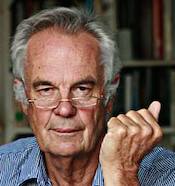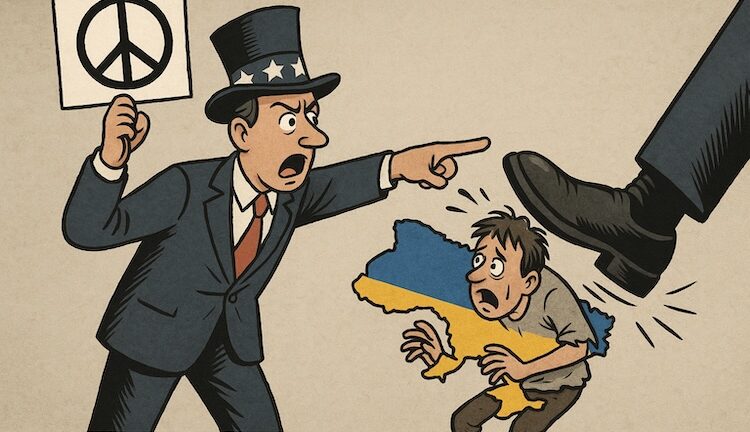Will major Western countries tell Ukraine that if the war is to stop, all it must do is to declare that it will not seek NATO membership?
By Jonathan Power*
LUND, Sweden | 22 July 2025 (IDN) — When it comes to Ukraine, the US and the EU are adopting a holier-than-thou attitude which, unfortunately, leads them not to worship at the altar of truth.
How all this “Russian interference” compares with the post-Cold War expansion by NATO forces up to Russia’s borders, senior Western politicians’ (including the US ambassador) provocative support for a revolutionary movement that included a healthy contingent of neo-fascists who won seats in the Ukrainian Cabinet, and the funding of opposition forces and NGOs, is to be wondered at. (I’ve long been surprised at the tolerance for Western NGOs based in Russia and China. Imagine the reverse.)
As for international law, the US, the UK and France ignore it when convenient. When, in 1980, Iraq’s Saddam Hussein launched an invasion of Iran, the US and the UK supplied him with weapons and military intelligence. When the US feared the World Court would find against it for mining the harbours of revolutionary Nicaragua, it withdrew from the Court. When NATO was intent on bombing Serbia and later Kosovo, it bypassed the UN Security Council. However, according to the Charter, it is the only body that can legalise offensive military activity.
Against international law and UN Security Council
When the Security Council voted against the US, UK and France launching a second Iraq war, they ignored its majority vote against. When the West won a resolution, with Russian support, to protect civilians in the Libya of Muammar al-Gaddafi, it bent Security Council authority. It did not stop air attacks until he was overthrown. The Russians were furious. Ironically, when most Western nations decided to recognise Kosovo as a state independent of Serbia against the wishes of Russia and even some EU members such as Spain, they gave a hostage to fortune. Russia now controls Crimea. We are only doing what you did over Kosovo.

The trouble with behaving like this is that international law and the Security Council don’t, like an elastic band, return to their original shape when stretched. So, when it came to Crimea, where Russia was arguably in the wrong, many influential countries in the world, such as India, China, South Africa, Brazil and Israel kept silent and did not vote to back the Western condemnation. (Neither did they support Russia.)
Losing Russia through mismanagement of a crisis is not a very clever thing to do. It means that there will be no more nuclear disarmament for as far into the future as one can see. Trade and financial exchange with Russia’s large and growing market is hindered by sanctions that affect both sides. Nationalism in Russia, even among the intelligentsia, is rising fast. (Remember how, after 9/11, 80% of Russians supported the US.) Russia and China have become closer.
The US and the EU are shooting themselves in the foot.
Former President Richard Nixon, the author of detente, is presumably turning in his grave. He tried to persuade President Bill Clinton, who was gung-ho on expanding NATO to Russia’s borders, despite an American promise not to, to ease up.
President Barack Obama, after steering well clear of Clinton-type policy, embraced it. He often appeared to downplay the many ways Russia cooperated with the West. Russia provides transport on its rockets to the International Space Station, which no other nation is currently capable of doing. It supplies engines to US space rockets. It cooperates with the West in combating Al Qaeda and the Taliban. It granted permission for US war materials en route to Afghanistan to use Russian trains. It gave its authorisation for overflying to Afghanistan. (Russia shares an interest with NATO in Afghanistan since it lost a million men in its foolish war there.)
With Syria, it persuaded the late Bashar Al-Assad to give up his chemical weapons. Not least, it is on balance a positive diplomatic force in pushing Iran to prove to the world community that it has no program to build nuclear weapons.
The big question is, will major Western countries tell Ukraine that if the war is to stop, all it has to do is to say it won’t seek NATO membership. (Only well into the war did Russia add a further condition—that it would keep the Russian-speaking territory it had captured—a move that would be pretty popular among the local inhabitants.)
Does the West want to lose Russia? And if so, where does the peace of Europe go next—the German way with the biggest European army and larger and more destructive weapons?
By the way, who gives Germany the authority to plan for war with Russia for the second occasion in a lifetime? Has anyone thought how the ordinary Russians might feel?
*Jonathan Power has been an international foreign affairs columnist for over 40 years and a columnist and commentator for the International Herald Tribune (now the New York Times) for 17 years. [IDN-InDepthNews]
Copyright © Jonathan Power
Visit www.jonathanpowerjournalist.com
AI-generated image inspired by Nastranis’ concept.


